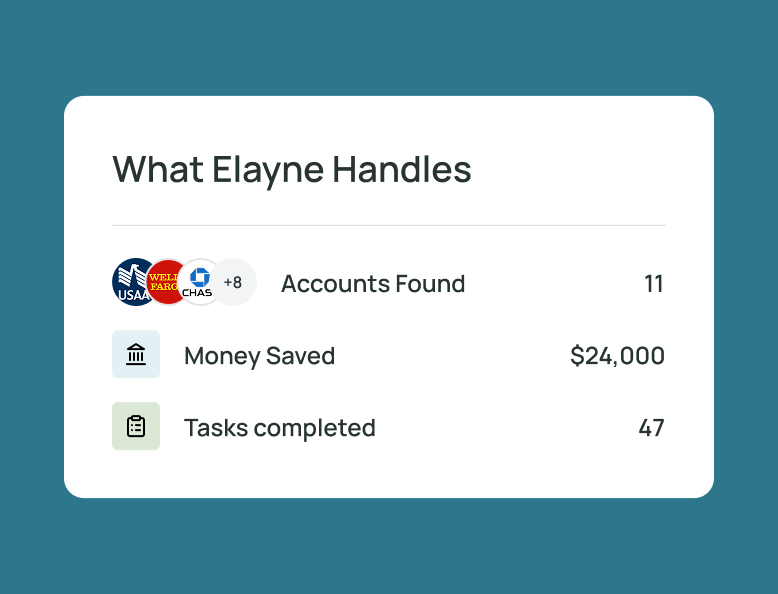Estate planning uses specific tools to prepare for transferring an individual's wealth and assets after death. When making these arrangements, choosing the right option can protect your assets and ensure your wishes after you're gone. Depending on your choice, there may be significant implications for the distribution of assets.
Among the various options available, wills and trusts are two of the most powerful and commonly used tools for estate planning. However, the complexity surrounding these two tools can lead to confusion and uncertainty.
{{blog-cta-admin}}
Understanding Estate Planning
Estate planning is the process of preparing for the transfer of a person's wealth and assets after their death. It incorporates the distribution of property, the care of minors, support for loved ones, and the legacy one wishes to leave behind. Effective estate planning ensures an individual's wishes are respected, and beneficiaries are provided for as intended.
Understanding Wills
Definition and Purpose
A will, also known as a last will and testament, is a legal document that sets forth how a person's assets should be distributed upon death. It's one of the most basic and essential elements of estate planning. Here are some critical aspects of wills:
- Purpose: The primary purpose of a will is to offer clear instructions on how you want your property and assets distributed after your death. It can also appoint guardians for minor children, name an executor to manage your estate, and even specify funeral arrangements.
- Legal Process: One of the most significant aspects of a will is that it must go through probate. Probate is a legal process where a court oversees the will's administration, ensuring that debts are paid and assets are distributed according to the deceased's wishes.
- Flexibility: Wills can be updated or changed at any time if the person creating the will (known as the testator) is of sound mind. This flexibility allows for adjustments as life circumstances change.
- Public Record: Once a will goes through probate, it becomes part of the public record. A public record allows anyone access to the information within it.
- Contestability: Wills can be contested in court by dissatisfied heirs or other interested parties. While this doesn't necessarily mean courts won't uphold the will, it can lead to lengthy and costly legal battles.
Understanding Trusts
Definition and Purpose
A trust is a fiduciary arrangement that allows a third party, known as a trustee, to hold and manage assets on behalf of beneficiaries. Trusts offer a higher degree of control and flexibility compared to wills. Here are some key points about trusts:
- Types of Trusts: There are two main categories of trusts - living (or inter vivos) and testamentary. Living trusts are created and take effect during the creator's lifetime, while a will creates testamentary trusts and takes effect after death.
- Revocable vs. Irrevocable: Living trusts can be either revocable or irrevocable. Revocable trusts can be altered or terminated by the creator during their lifetime, while irrevocable trusts generally cannot be changed once established.
- Probate Avoidance: One of the primary benefits of a trust is that assets held within it typically avoid the probate process. Avoiding probate can save time and money while maintaining privacy.
- Privacy: Unlike wills, trusts are not part of the public record, offering a higher degree of privacy for the estate and its beneficiaries.
- Control: Trusts allow more detailed and specific instructions on how and when to distribute assets. This flexibility can benefit complex family situations or when providing for beneficiaries with special needs.
Key Differences Between Wills and Trusts
Legal Implications
While both wills and trusts serve the purpose of distributing assets according to one's wishes, they differ in several important ways:
- Creation and Maintenance: Initially, wills are generally more straightforward and less expensive. Trusts involve more upfront work and cost, but they can save money in the long run by avoiding probate fees and potentially reducing estate taxes.
- Privacy: Wills become part of the public record during probate, while trusts remain private. This factor can be crucial for those who value confidentiality in their financial affairs.
- Probate: Assets distributed through a will must go through probate, which can be time-consuming and costly. Trust assets typically avoid probate, allowing for quicker and often less expensive transfer of assets.
- Control: Trusts offer more control over how and when assets are distributed. For example, you can specify that beneficiaries receive distributions at certain ages or upon achieving certain milestones.
- Effectiveness: A will only take effect after death, while individuals can use a living trust to manage assets during one's lifetime, particularly in cases of incapacity.
Factors to Consider When Choosing
Personal Circumstances
Deciding between a will and a trust depends on various factors:
- Complexity of Assets: A will may suffice if you have a straightforward estate with few assets. However, a trust might be more appropriate if you have a complex portfolio of assets, including businesses or properties in multiple states.
- Privacy Concerns: If maintaining privacy is a top priority, a trust offers significant advantages over a will.
- Family Dynamics: Complex family situations, such as blended families or beneficiaries with special needs, might be better served by the flexibility of a trust.
- Cost Considerations: While trusts generally involve higher upfront costs, they can save money in the long run by avoiding probate fees and potentially reducing estate taxes.
- Control: A trust offers more options if you want to maintain control over how and when your assets are distributed, even after your death.
- Age and Health: Younger individuals in good health might start with a will and transition to a trust later in life. However, a trust can be valuable for managing assets if there's a concern about potential incapacity.
Making Your Decision
Choosing between a will and a trust is a personal decision that depends on your unique circumstances, financial situation, and long-term goals. Many find that combining a will and a trust best serves their needs. For instance, you might use a trust for most assets while maintaining a will to catch any assets not included in the trust and to name guardians for minor children.
{{blog-cta-admin}}
Conclusion
It's important to remember that estate planning is not a one-time event. Your estate plan should be reviewed and updated accordingly as your life circumstances change - through marriage, divorce, births, deaths, or significant changes in financial status.
It’s always best to seek professional advice before making a final decision. An experienced estate planning attorney can help you navigate the nuances of wills and trusts, ensuring that your chosen strategy aligns with your goals and provides the best possible outcome for your beneficiaries.
Whether you opt for a will, a trust, or a combination of both, the most important step is having a comprehensive estate plan. Elayne can help you create, update, and share these important documents within the platform –streamlining the entire estate planning process for you and your loved ones. By making informed decisions now, you can secure the future for your loved ones, protect your assets, and ensure that your legacy is preserved according to your wishes. Remember, the peace of mind that comes from knowing your affairs are in order is invaluable, both for you and for those you leave behind.













































